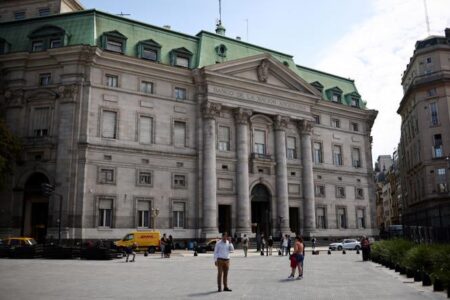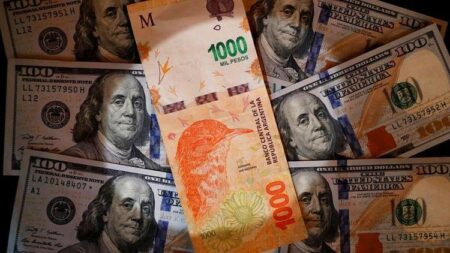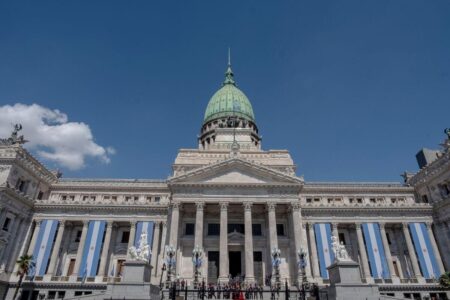Argentina’s President Javier Milei achieved a significant milestone by securing a deal with the IMF, marking a pivotal step towards economic stabilization. The agreement allows for the removal of most capital controls, signaling a shift towards fiscal reform and investor confidence.
Browsing: economic reforms
Argentina announced plans to lift its strict currency controls, bolstered by support from the International Monetary Fund (IMF). The move aims to stabilize the economy and restore investor confidence amid ongoing financial challenges.
Argentina has formally requested the first tranche of over 40% of its $20 billion loan program from the International Monetary Fund (IMF). This financial assistance aims to stabilize the country’s economy amid ongoing fiscal challenges and inflation concerns.
India and the International Labour Organization (ILO) are in discussions focusing on fair wages, the welfare of gig workers, and improving decent work conditions. This collaboration aims to enhance labor standards and ensure equitable opportunities for all workers.
German parties have reached a consensus to relax fiscal rules, enabling significant investments in military and economic reforms. This shift aims to fortify national defense and stimulate economic growth, reflecting a strategic response to emerging global challenges.
Japanﻗs ruling party has proposed capping the tax rate on cryptocurrencies at 20%, aligning it with the tax rate for stocks. This move aims to stimulate investment in digital assets and enhance the countryﻗs attractiveness in the evolving crypto landscape.
Amidst economic uncertainties, Germanyﻗs Finance Minister Christian Merz has initiated a fiscal awakening aimed at revitalizing the nationﻗs economy. His strategic policies may steer Germany back on track, fostering growth and stability in the Eurozone.







